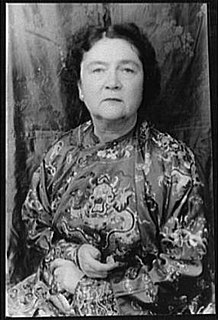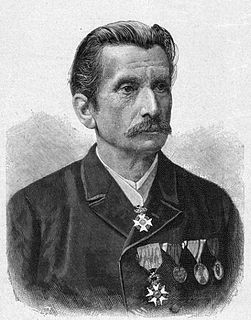A Quote by Elbert Hubbard
A man who marries a woman to educate her falls victim to the same fallacy as the woman who marries a man to reform him.
Related Quotes
The reclusive man who marries the gregarious woman, the timid woman who marries the courageous man, the idealist who marries the realist we can all see these unions: the marriages in which tenderness meets loyalty, where generosity sweetens moroseness, where a sense of beauty eases some aridity of the spirit, are not so easy for outsiders to recognize; the parties themselves may not be fully aware of such elements in a good match.
Man is the one who desires, woman the one who is desired. This is woman's entire but decisive advantage. Through man's passions, nature has given man into woman's hands, and the woman who does not know how to make him her subject, her slave, her toy, and how to betray him with a smile in the end is not wise.
From woman, man is born; within woman, man is conceived; to woman he is engaged and married. Woman becomes his friend; through woman, the future generations come. When his woman dies, he seeks another woman; to woman he is bound. So why call her bad? From her, kings are born. From woman, woman is born; without woman, there would be no one at all.
Every one knows about the young man who falls in love with the chorus-girl because she can kick his hat off, and his sister's friends can't or won't. But the youth who marries her, expecting that all her departures from convention will be as agile or as delightful to him as that, is still the classic example of folly.
The misnamed "feminine" woman, so admired by her creator, man - the woman who is acquiescent in her inferiority and who has swallowed man's image of her as his ordained helpmate and no more - is in reality the "masculine" woman. The truly feminine woman "cannot help burning with that inner rage that comes from having to identify with her exploiter's negative image of her," and having to conform to her persecutor's idea of femininity and its man-decreed limitations.





































